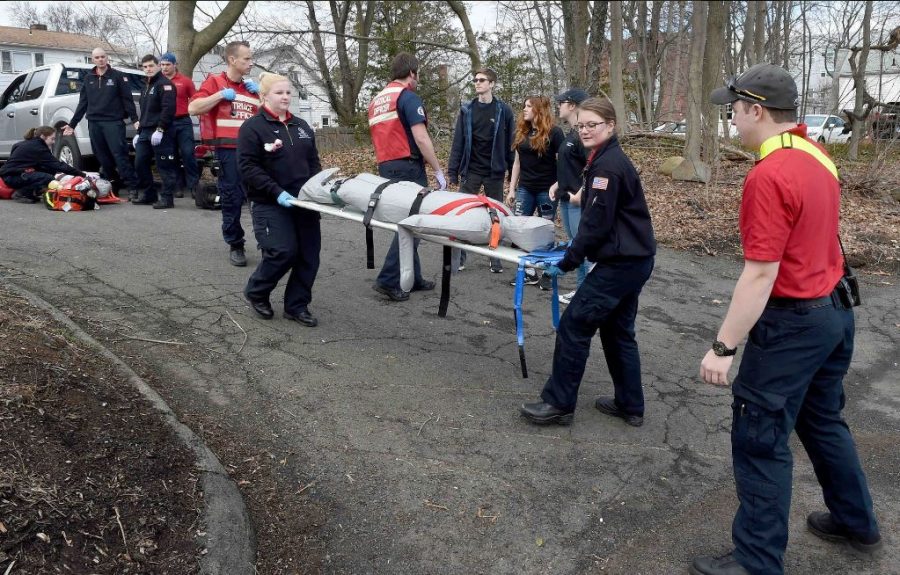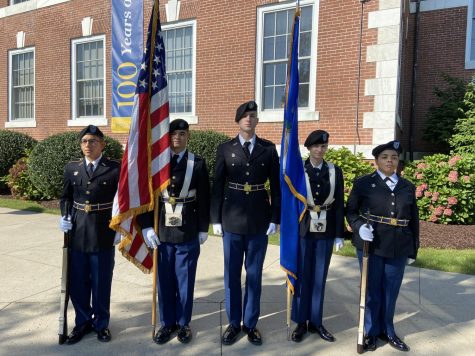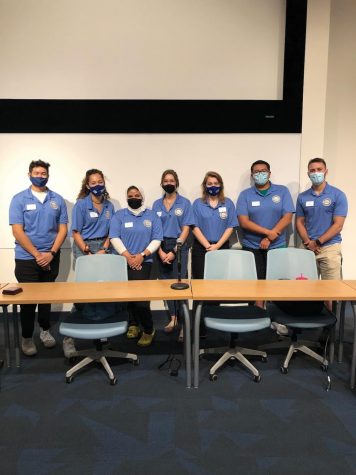Students Prepare for the Worst in Mass Casualty Drill
On April 5 and 6, the University of New Haven’s Henry C Lee College held a mass casualty drill as a way to train and prepare students whose future careers first response and national security.
The drill was a simulation of a mass casualty bombing involving a terrorist using chemical weapons. The scenario was set around a United States senator hosting a dinner at the “New Haven Hotel,”a fictional hotel created for the event, where the senator was to announce he was running for higher office. There was an “explosion” with an “active fire” and “many casualties” resulting in the need of first responders, hazmat teams, national security officers, and legal teams.
“The purpose was to provide hands-on training for the Henry Lee College,” said Eric Demeraski, a junior who studies paramedicine at the University.
It was a joint effort between the fire science, criminal justice, and national securities departments. Fire science club, EMS (emergency medical services) club, U.N.H. paramedicine program, criminal justice courses, forensic sciences, national securities and communication departments were all there to do their part.
Teams were made from the different majors and students focused on tasks they would face if the event was not a drill. Paramedicine and criminal justice students were first responders, forensic science students investigated the crime scene, legal studies students completed warrants, and fire science students dealt with the fire.
Students moved bodies, tended to injured people, decontaminated survivors and investigated the scene as if it were to be an actual emergency situation.
Tori White, a senior double majoring in political science and legal studies was the incident commander for the legal studies department.
“[My responsibilities were] coordinating with my co-commander to ensure we were on the same page with the rest of the group. We were ensuring warrants were completed before searches happened,” said White.
“I was a forensic scientist told to investigate the evidence. I always like the mass casualty drill because it really gives the experiencing education,” said Alexandra Chueiri, a junior doubling majoring in forensic science and biology, pre-med at the University. “You’re on site, doing things your major would be doing if it were a real situation.”
Overall, the two day exercise was considered a success by the departments and students involved, and will return to campus again next spring for continued training of University students.









